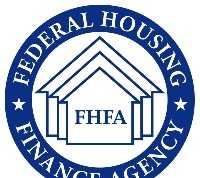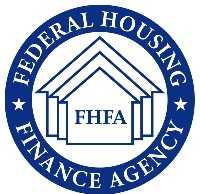700,000 U.S. Minors are Alone and Without A Home: New Report Addresses Their Rights In Every State
Legal Barriers Prevent Youth from Accessing Essentials like Shelter, Health Care, School
(February 13, 2019, Washington, D.C.) — (RealEstateRama) — A new report by the National Law Center on Homelessness & Poverty and National Network for Youth discusses the state laws impacting an estimated 700,000 minors in the U.S. experiencing homelessness alone each year. These youth face high risks of assault, dropping out of school, food insecurity, and health problems.

But some states are taking steps to ensure that these youth have the legal protections necessary to meet their basic needs—holding the promise of a quicker transition to stable and healthy lives.
“Youth experiencing homelessness alone are especially vulnerable and often traumatized, and it is critical that states remove barriers to assistance and provide the resources to help them,” said Maria Foscarinis, executive director of the Law Center. “Policymakers must address the urgent needs of these youth, and this report offers common-sense proposals to help them do that.”
Common causes of youth homelessness include severe family conflict, parental abuse or neglect, parental mental health issues, and substance abuse. The report, Alone Without a Home, reviews current laws affecting youth in all 50 states and six U.S. territories, highlights best practices, and recommends policies that prioritize the unique needs of unaccompanied homeless youth.
Youth with experience of trauma are at further risk on the streets—63% of LGBTQ youth and 47% of non-LGBTQ youth report being physically harmed by others while homeless. The report argues for states to enact policies that support the health, welfare, stability and autonomy of unaccompanied youth.
The report finds that the majority of states have adopted more inclusive terminology, but eight states still use archaic terms to refer to unaccompanied youth, such as “incorrigible,” “unruly,” or “delinquent,” which promote punitive approaches to youth rather than ones to ensure their basic needs are met.
“The bottom line is: we can and must do better by these young people,” said Eric Tars, legal director for the Law Center. “And doing better begins with states enacting laws that remove barriers and provide support to these youth.”
Alone Without a Home recommends eliminating laws that criminally punish unaccompanied youth as “runaways” or “truants,” unnecessarily entangling them in the criminal justice system in favor of policies that divert them from court involvement. It also calls on states to expand access to services by decreasing legal barriers to housing, health care, education, and other critical programs. This includes allowing youth to contract for housing, receive medical treatment and testing, and enroll in school without parental consent or notification.
The rights of unaccompanied youth vary widely from state to state, and it is often difficult for service providers to keep abreast of eligibility rules for housing, health care, education, and other services. Alone Without a Home serves as a resource to youth advocates and service providers by clarifying the rights of youth in twelve distinct areas including: access to state issued identification; status offenses; discharge from the juvenile justice system; shelter; entering contracts; receipt of public benefits like TANF and SNAP (formerly food stamps); public education; health care; and emancipation.
“Frontline youth service providers can utilize this updated legal resource as they provide assistance to young people experiencing homelessness,” said Darla Bardine, executive director of the National Network for Youth. “Not only will this guide help providers know how their state laws address each issue facing the youth they serve, but it is a critical resource for them to be the best advocates they can at changing laws that are currently insufficient or worse, harmful.”
To read the full report, click here. To register for a free webinar on the report’s findings, click here.
###
The National Law Center on Homelessness & Poverty (the Law Center) is the only national organization dedicated solely to using the power of the law to prevent and end homelessness.
With the support of a large network of pro bono lawyers, we address the immediate and longterm needs of people who are homeless or at risk through outreach and training, advocacy, impact litigation, and public education.
The National Network for Youth is a membership organization of homeless and runaway youth programs that aims to encourage policies that aid and support youth’s ability to create a more positive future.
Contact:
NLCHP
Contact: Cassidy Waskowicz
Acting Director of Development &
Communications
NN4Y
Contact: Darla Bardine
Executive Director















